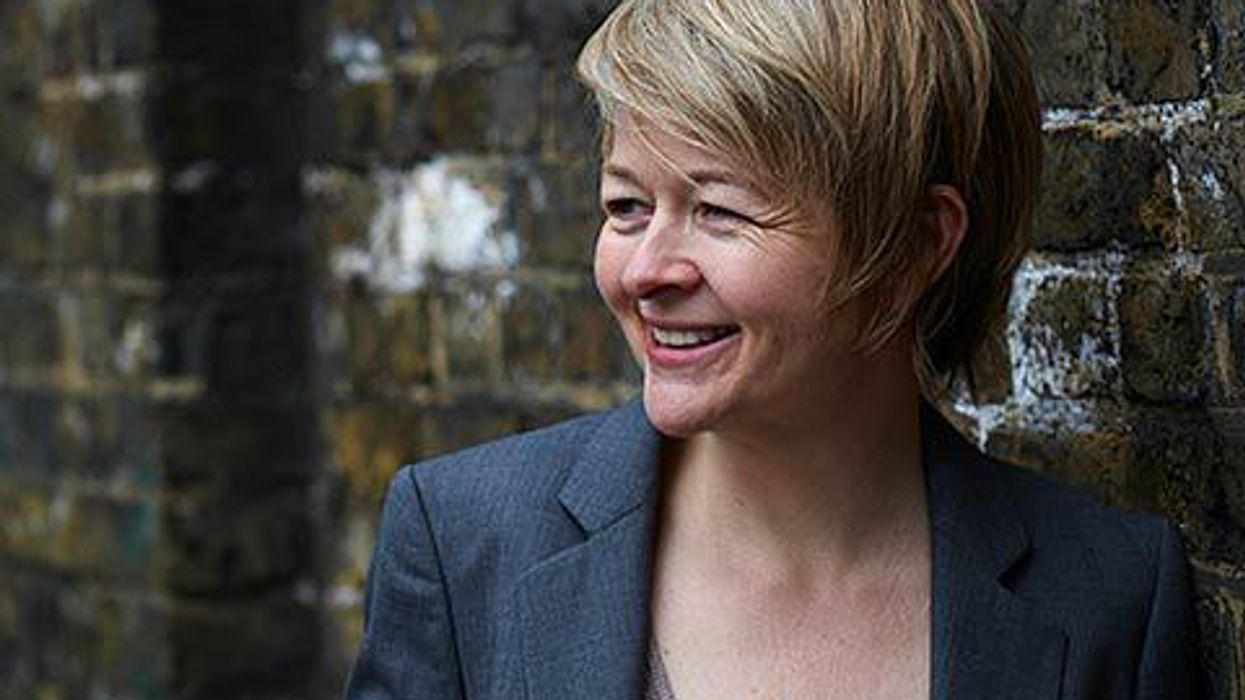This article does not contain spoilers.
That’s because readers will derive maximum pleasure from Sarah Waters’s wonderful new novel, The Paying Guests, if they don’t know for sure what’s coming. There’s much to enjoy about the story in any case, but really, it’s best with the element of surprise.
The novel is set in 1922 in a suburb of London, where 26-year-old Frances Wray and her mother are living in straitened circumstances. Frances’s two brothers were killed in the Great War; her father died of a stroke soon afterward, leaving his widow and only surviving child a pile of debts from his bad investments. Frances and her mother no longer have the means to maintain their accustomed upper-class lifestyle, so they have let their servants go and have converted a portion of their large house into a rental apartment.
The story opens as the renters, euphemistically known as “paying guests,” move in. Leonard and Lilian Barber are a young married couple from what the well-born condescendingly call the “clerk class.” Leonard is just that, a clerk in an insurance company; Lilian is a homemaker with an artistic bent evident in her taste in clothes and interior decoration. She is also voluptuous and attractive, something not lost on her landlady. Frances is no stranger to same-sex love; during the war, she had an intense romance with a fellow peace activist named Christina, a relationship broken up by their parents.
Soon enough, it’s clear that Lilian reciprocates Frances’s feelings, and they begin a passionate affair under the noses of Frances’s traditionalist mother and the skeevy but rather clueless Leonard — but then the story takes a stunning turn, one that will keep readers up late and satisfy Waters’s legions of fans while winning her some new ones.
“I really did want that moment to come as a shock,” says the Welsh-born London resident, interviewed during her recent U.S. tour. “That’s what I wanted for the characters and what I want for the readers.”
In The Paying Guests, readers will find the hallmarks of Waters’s work: a compelling plot, three-dimensional characters, sensuous love scenes, exploration of feminist and class issues, and an exquisitely rendered sense of time and place. The author has not ruled out writing a novel with a present-day setting, but all those she’s published to date are set in the past.
Regarding the 1920s milieu, she says, “I really didn’t know much about the period when I went there. It was exactly because I didn’t know much about the 1920s that I was intrigued.”
In the novel’s time frame, just four years after the end of the conflict that would later be known as World War I, many of the characters are still reeling from the war’s effects. Frances and her mother must adjust to a new way of life and the absence of their loved ones. The class structure has survived but has been shaken. Women have gained limited rights but not equality.
“Class has always been such a big deal in Britain,” says Waters, by way of explaining its prominence in her novels. “You can’t ignore it, and you shouldn’t ignore it. I’ve always found it a fascinating thing to think about, a fascinating thing to write about.”
That’s also true of the restrictions on women’s lives, such as limited economic opportunities and lack of control over one’s reproductive life — and definitely the taboo on same-sex love, she notes.
Rather than writing about modern-day LGBT characters, she says, “I’m much more interested in how gay people have negotiated mainstream hostility and managed to live their lives.” The characters in her novels set in the Victorian era, such as Tipping the Velvet and Fingersmith, “had an odd sort of freedom because lesbian and gay life was so much off the radar,” she adds. That’s not quite the case for her 20th-century protagonists.
As in Waters’s previous novels, the primary characters in The Paying Guests are well-rounded and, to a degree, sympathetic; Leonard is not particularly likable, but he’s not an out-and-out villain. At the mention of this, Waters says, “I hope that’s true of my characters — nobody’s all bad, but nobody’s all good either. The novel is a very compassionate form, a very honest form. It’s kind of a novelist’s job, in a way, to do justice to those complexities.”
Waters’s novels have often been translated to other forms; Tipping the Velvet, Affinity, Fingersmith, and The Night Watch have all been adapted as TV movies or miniseries, and The Little Stranger, her acclaimed ghostly thriller, is being developed as a feature film by director Lenny Abrahamson (Frank), who’s also doing the film version of Emma Donoghue’s Room.
With The Paying Guests just out, Waters, who lives in London with partner Lucy Vaughan, isn’t sure when we’ll see her next novel, but fans won’t be totally starved for her work. The Frozen Scream, a play that she and Christopher Green adapted from a 1928 supernatural murder-mystery novel, will have its world premiere in December at the Wales Millennium Centre in Cardiff. Also, a new stage version of Tipping the Velvet, adapted by Laura Wade, is slated for the U.K. next year, and U.S. audiences can see Alexa Junge’s new adaptation of Fingersmith at the 2015 Oregon Shakespeare Festival.
In the meantime, pick up The Paying Guests — you won’t soon put it down.
The Paying Guests is available now from Riverhead Books.























































































 Cindy Ord/Getty Images
Cindy Ord/Getty Images























